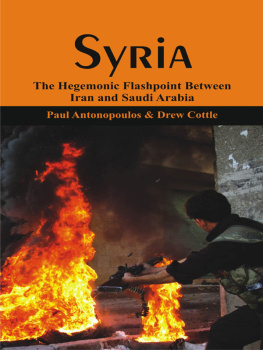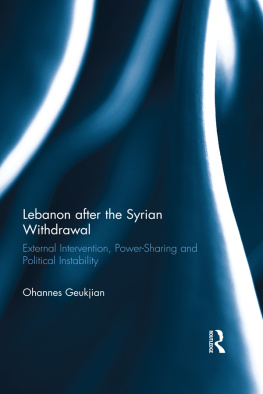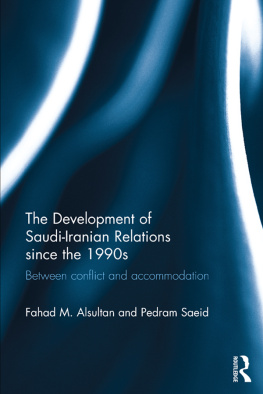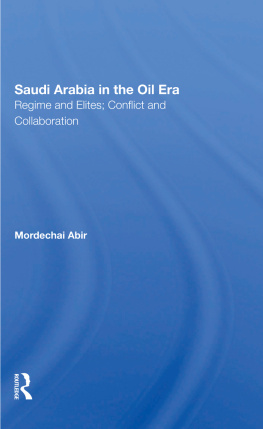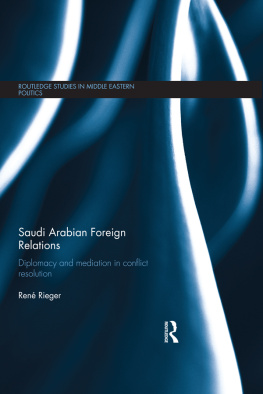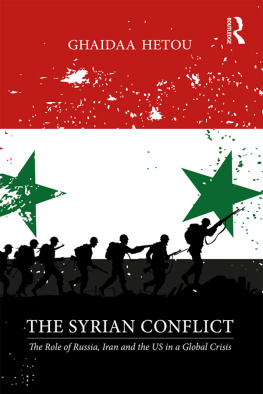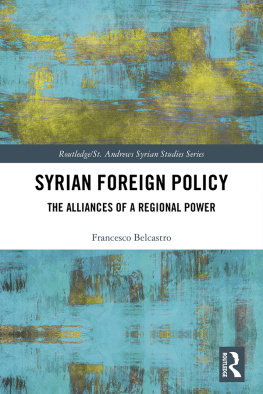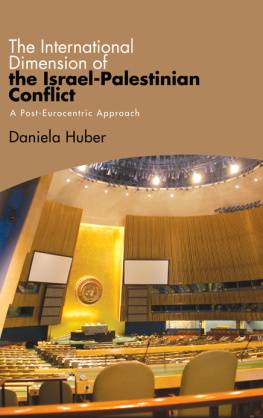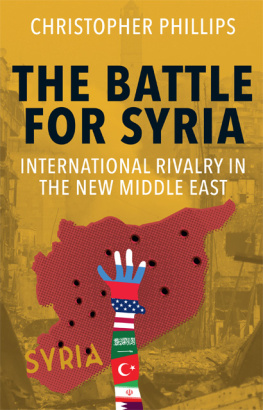Copyright 2017, Authors
First Published in 2017
ISBN : 978-93-86457-09-7 (Hardback)
ISBN : 978-93-86457-11-0 (ebook)
Price : 595/-
Designed and Setting by
Vij Books India Pvt Ltd
2/19, Ansari Road, Darya Ganj,
New Delhi - 110002 (India)
www.vijbooks.com
All rights reserved.
No part of this book may be reproduced, stored in a retrieval system, transmitted or utilized in any form or by any means, electronic, mechanical, photocopying, recording or otherwise, without the prior permission of the copyright owner. Application for such permission should be addressed to the author.
by Oliver Villar
I mperial wars by proxy, Tweedledum Tweedledee elections to distract the masses, 2016 was the year of growing inter-imperialist rivalries, shifting alliances and capitulation. The Syrian war, tensions in the South China Sea, the restoration of capitalism in Cuba and the ending of the worlds longest running civil war in the Andean nation of Colombia, will all be seen as decisive moments for historians in years to come.
On a purely strategic standpoint, imperial wars are being waged by proxy states, alliances and agreements are being shaped by economic interests, and many of these state actors are in fact dictatorships. In this era of waging terrorism for imperial gain the dictators the West supports get Nobel peace prizes or a praised for being innovative. The governments Russia and China support are the subject of media bias. President Bashar al-Assad is one such example. United States imperialism wants him out, Russian imperialism wants him to stay. All of them claim they are fighting terrorism.
Unlike most political analyses in conflict, security or area studies, this study does not take a safe, conventionally liberal examination of the Syrian war. It goes beyond the Sunni-Shiite divide offered by most commentators and exposes the official propaganda of the West. The study refutes any suggestion of a civil war and demonstrates it is an interventionist proxy war shaped by Saudi-Iranian geopolitical rivalry in the region.
In no other region but the Middle East can we find states engaged in such violent geopolitical rivalry. In Latin America and Africa, the Chinese drive for trade, energy sources and markets for investment is challenging Washington but not imperialism. As the European Union struggles to survive, the Pacific Ocean is fast becoming another theatre for inter-imperialist rivalry. Syria is a victim of numerous aspiring imperial powers and their proxies ranging from the Kurds to ISIL.
The struggle to preserve or topple Assad is complex. Whatever we may think of him or his chief supporter Russian President Vladimir Putin or the Axis of Resistance alliance between Iran, Syria and the Lebanese militant group Hezbollah which this study proposes, it makes an important contribution to understanding twenty-first century imperialism. It lays the foundation for examining imperialism and Wahhabi terrorism in the Middle East, and as Irans influence continues to grow the meaning of its 1979 revolution and its ongoing confrontation with Israeli Zionism.
There is no revolution in Syria and the Western backed jihadists must be defeated. This study must be commended not just for acknowledging inter-imperialist rivalry and denouncing US imperialism, but for helping to expose the bankruptcy which now accounts for much of the so-called left today. How Donald Trump in the White House will change the Syrian war remains to be seen but making an enemy of China when US imperialism needs Chinese imperialism more will provide clues to how regions plagued by imperialism will be affected.
I reject any idea of a permanent peace existing between the imperialist powers, there are only permanent smaller wars before an inevitable major one. Whether Trump can court Americas rivals as Zbigniew Brzezinski has proposed will be a challenge that will either ignite or delay this major war between the imperial powers.
The destabilization of the Middle East is no longer a unipolar moment. Like the Syrian war, the Iraq and Afghanistan conflicts as well as the Libyan fiasco have also been shaped by regional ideologies, resource extraction and the fight for domination by the rival imperialists. In no small irony, the support for Assad, Putin or the Syrian Revolution has been made possible by the flag wavers from left to right demonstrating again the bankruptcy engulfing both the experts and activists.
Whatever our politics or ideological orientation, we cannot afford to live in the past when examining Syria, the Ukraine, Cuba/Venezuela, Colombia, and most importantly, any of the leading imperial powers the USA, Russia and the Peoples Republic of China which shape our times. Failure to heed this call means abandoning a concrete understanding of a concrete situation in favour of mere book worship, and placing the state above class relations and analysis.
In this troubled century which we now face, no country is safe from imperialism whether it is from the Americans, Russians, Chinese or any aspiring contender. This study therefore only tells half the story. The war for Syria is also an ideological one as for every conflict won what follows is ideas.
The ruling classes and their states jockeying for position in the global economic capitalist system seek to fool the masses. It is only time, however, until the people of the world will see through their lies and falsehoods, the people want a new world where leaders stick to their promises and martyrs die for something.
- Canning Waters, 2017
T his book must first and foremost acknowledge the Syrian people. In the face of the most gruesome war of the 21st Century so far, that has seen the rise of sectarian and barbaric death cults like ISIS, the al-Nusra Front, Ahrar al-Sham and the hordes of other terrorist groups, with the support of the rich and puritanical Gulf dictators and from Western imperialist powers, they have remained steadfast in defiance against this aggression. The Syrian peoples rejection of Wahhabism, Zionism and Western imperialism has made them a target to the powers that be. They have faced one the most aggressive wars seen in human history with courage and optimism.
Also we thank Dr Oliver Villar, lecturer at Charles Sturt University, who wrote the foreword to this book, and his endless encouragement and support to get this work completed.
We happily acknowledge many people in the field who have countered and exposed the lies associated to Syria; principally Dr Tim Anderson whose book The Dirty War on Syria has been an important piece of work in revealing the truth, Maram Susli aka Syrian Girl, who has effortlessly committed the better part of her life since 2011 for Syria, and to Leith Abou Fadel, owner of Al-Masdar News, who has established one of the few news outlets offering fair and accurate reporting from the war.

